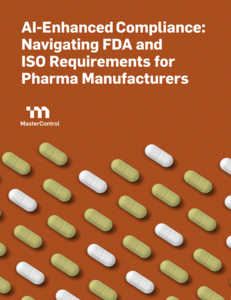
GxP Lifeline
Ensuring Consistency and Accuracy of Equipment: Outsourcing to ISO 17025 Accredited Suppliers

The consistency and accuracy of measurement results is an integral part of any business that relies on measuring equipment as a part of their process. For example, pipettes and analytical balances that measure the amount of material that is going to be used in the manufacturing of a pharmaceutical product. The pharmaceutical company needs to make sure that the analytical balance and pipettes produce consistent and accurate results to avoid nonconformances during their process. One way of reducing the risk involved with pharmaceutical equipment measurements is to make sure that the equipment is calibrated by an ISO 17025 accredited laboratory.
The Role of Pharmaceutical Equipment Calibration
The consistency, accuracy, and reliability of the manufacturing process is dependent on many factors, one of which is the calibration of the equipment involved in the process. Some examples of equipment that pharmaceutical companies need calibrated are:
- Spectrophotometers.
- Thermometers.
- Pressure gauges.
- Resistance temperature detector (RTD) probes.
- Analytical balances.
- Pipettes.
- And many other types of equipment.
All this equipment must be calibrated to ensure it is functioning properly and that you can rely on the results. There are additional risks involved when deciding which supplier is going to perform pharmaceutical equipment calibration. Some of these calibration management risks include:
- The uncertainty of measurement that the calibration lab reports.
- The calibration interval.
- The competence of the calibration laboratory.
- If the laboratory is held to industry standards.
It can be difficult to manage all these potential risks. However, there is one way to significantly reduce these risks without having to ask every potential supplier a bunch of unnecessary questions. That would be to make sure that the lab has an ISO 17025 accreditation, and that the scope of their accreditation includes the equipment that you need calibrated.
What Is ISO 17025, and Why Does it Matter for Pharmaceutical Equipment Calibration?
What it means for a lab to have an ISO/IEC 17025:2017 accreditation is that they have undergone a surveillance audit proving to an accreditation company that they meet the minimum requirements detailed in the ISO 17025 standard. An accreditation company is an organization that is qualified to make the determination if labs are meeting the requirements of the ISO 17025 standard. The accreditation company sends an auditor to the laboratory to perform a surveillance audit and award the lab accreditation status.
The reason that outsourcing to an ISO 17025 accredited lab is so important is because they are required to meet the quality and technical requirements included in the ISO 17025 standard. First, the lab is required to have a quality management system (QMS) and personnel to maintain and continuously improve the QMS. The ISO 17025 standard has many quality requirements, but here are some things that you will know your accredited lab will have:
- Yearly third-party audits to ensure the lab is following the ISO 17025 standard.
- Competence and required technical training to perform the calibrations on their scope.
- Procedures for seeking customer feedback and reviewing it to improve their calibration outcomes.
- Procedures for backing up and keeping customer data safe and confidential.
- Requirements to provide calibration certificates that include all the measurement data and the estimated uncertainty for each measurement.
- Requirements to participate in proficiency testing studies.
- Requirements to define how they make decisions on the conformity of the equipment they are calibrating.
When you are outsourcing pharmaceutical equipment calibration it’s important to understand the difference between an ISO 17025 accredited and a non-accredited laboratory. Using an ISO/IEC 17025:2017 accredited laboratory will ensure that your calibrations are being performed by someone who must meet the requirements of the 17025 standards. The accredited laboratories will have to participate in yearly audits to prove that they are still meeting the quality and technical requirements of the standard.
How to Know if a Supplier Is an ISO 17025 Accredited Laboratory
It’s important to know how to identify the labs that are ISO 17025 accredited and those that are not. An easy way to verify this is to simply ask the laboratory. If they are accredited, it’s a good idea to ask them to provide a copy of their ISO 17025 accreditation certificate. This document will prove the lab is in good standing with the accreditation company, meaning that they have passed their most recent surveillance audit and that the certificate hasn’t expired. The other thing to ask them for is their scope of accreditation. This document will list all the measurements and ranges that they have been audited and accredited for. Asking for the scope and the certificate provides assurance that the lab is accredited and that the equipment being sent to them for calibration is within their scope of accreditation.
Outsourcing pharmaceutical equipment calibration to ISO 17025 accredited laboratories is not just the best practice, it’s a strategic decision to ensure accuracy, reliability, and compliance in your processes. These accredited labs are held to rigorous quality and technical standards, ensuring that your equipment is calibrated with precision and confidence. By working with ISO 17025 accredited suppliers, pharmaceutical companies can minimize risks, meet regulatory requirements, and safeguard the integrity of their manufacturing processes. Always verify the lab’s accreditation certificate and scope to ensure they meet your calibration needs. Investing in accredited suppliers is an investment in quality, compliance, and the success of your pharmaceutical operations.
Free Resource

Enjoying this blog? Learn More.
FDA and ISO Compliance for Pharmaceutical Manufacturers
Download Now